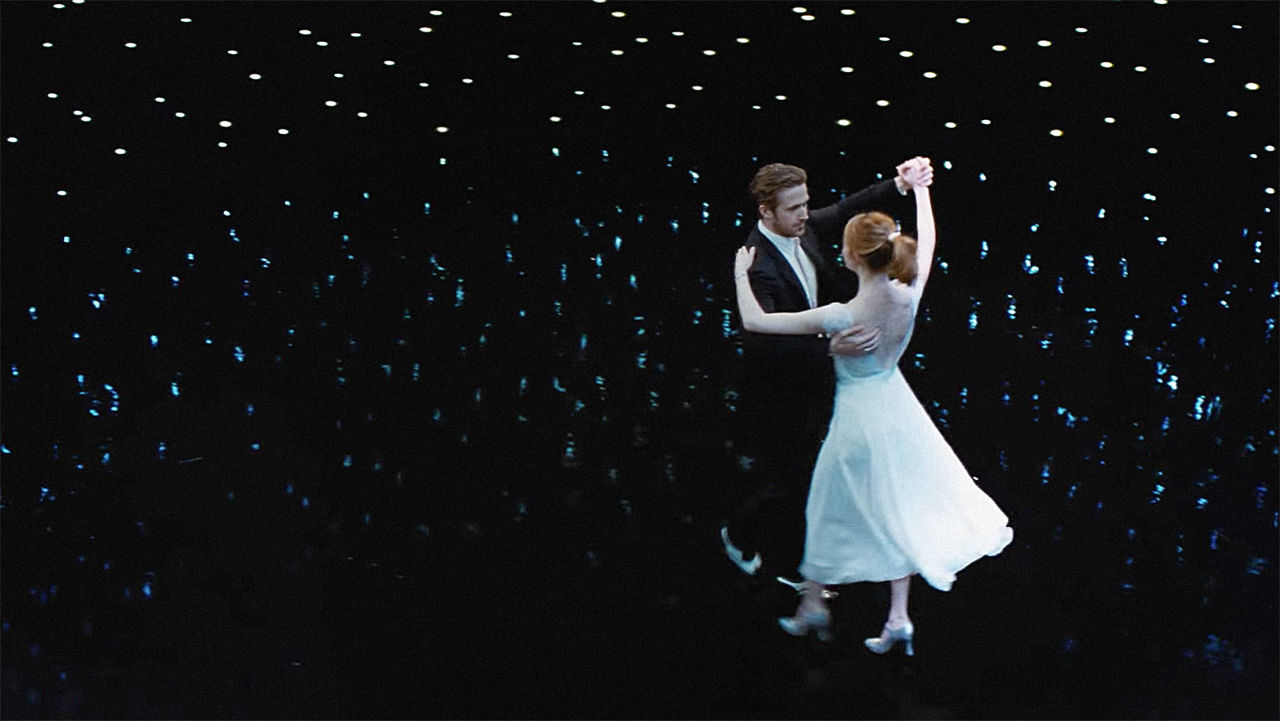At some point, it became fashionable to dislike films sight unseen.
The internet is awash in trailers, and studios don’t help by dripping out details, arriving eventually at the ludicrous end-game of the trailer-for-a-trailer. We’ve all been rooked by this. One unfortunate consequence is the heightening of expectations, and our weird desire to see those expectations undermined. Many folks go into theaters hoping to dislike the film they just paid to see, if only to get belated credit for their presumptive “wokeness”.
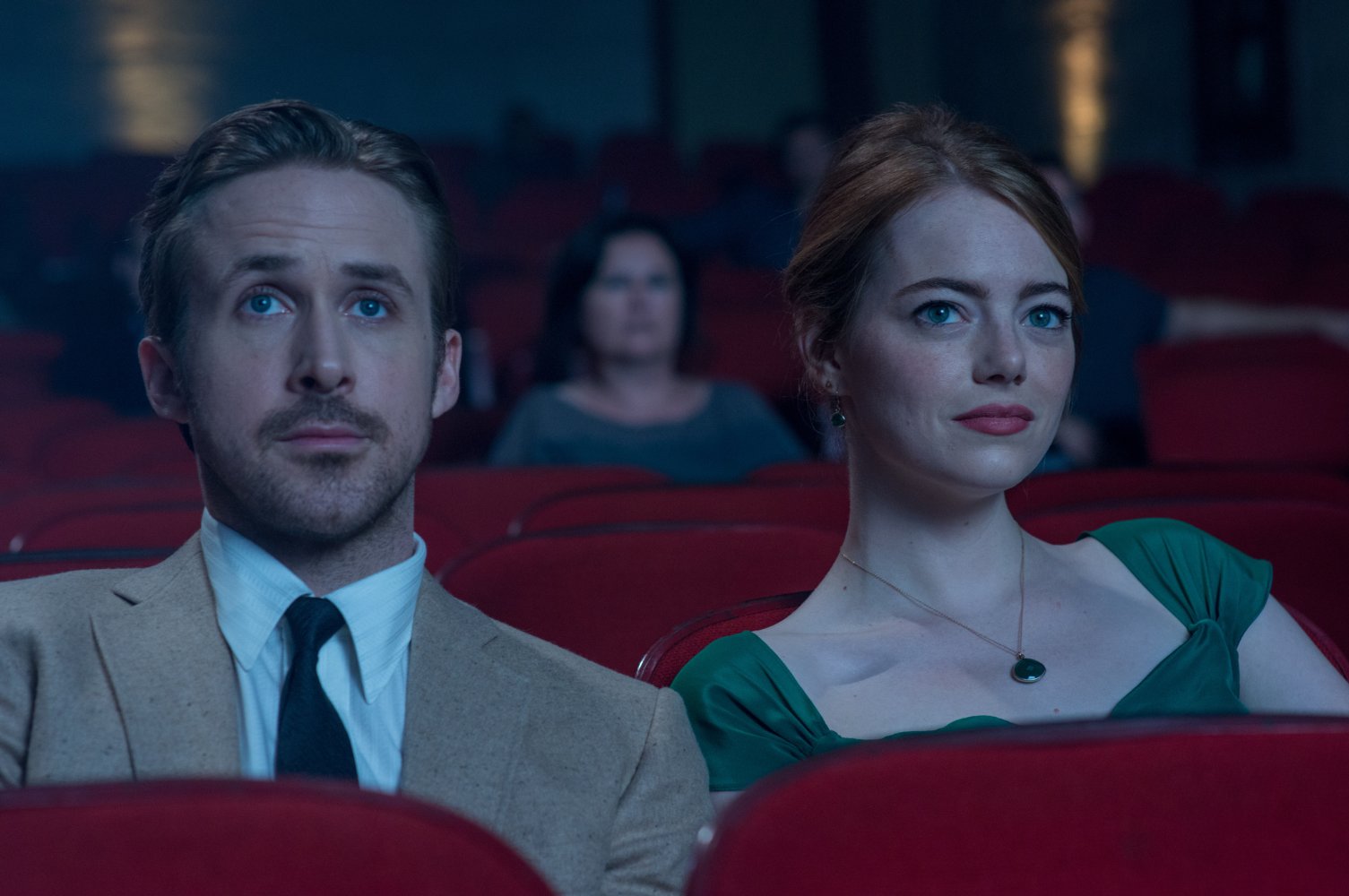
La La Land is starting to seem like the latest victim of the internet’s navel-gazing posturing. A huge step up from the embarrassingly embraced Whiplash, a movie that actually suffers from the exact missteps people have now decided to pin on its sequel, director Damien Chazelle has crafted a beautifully ambivalent love-letter to the form, channeling Jacques Demy and the lustrous Cinemascope fantasias of yesteryear, but sending both on a collision course with modern sensibilities.
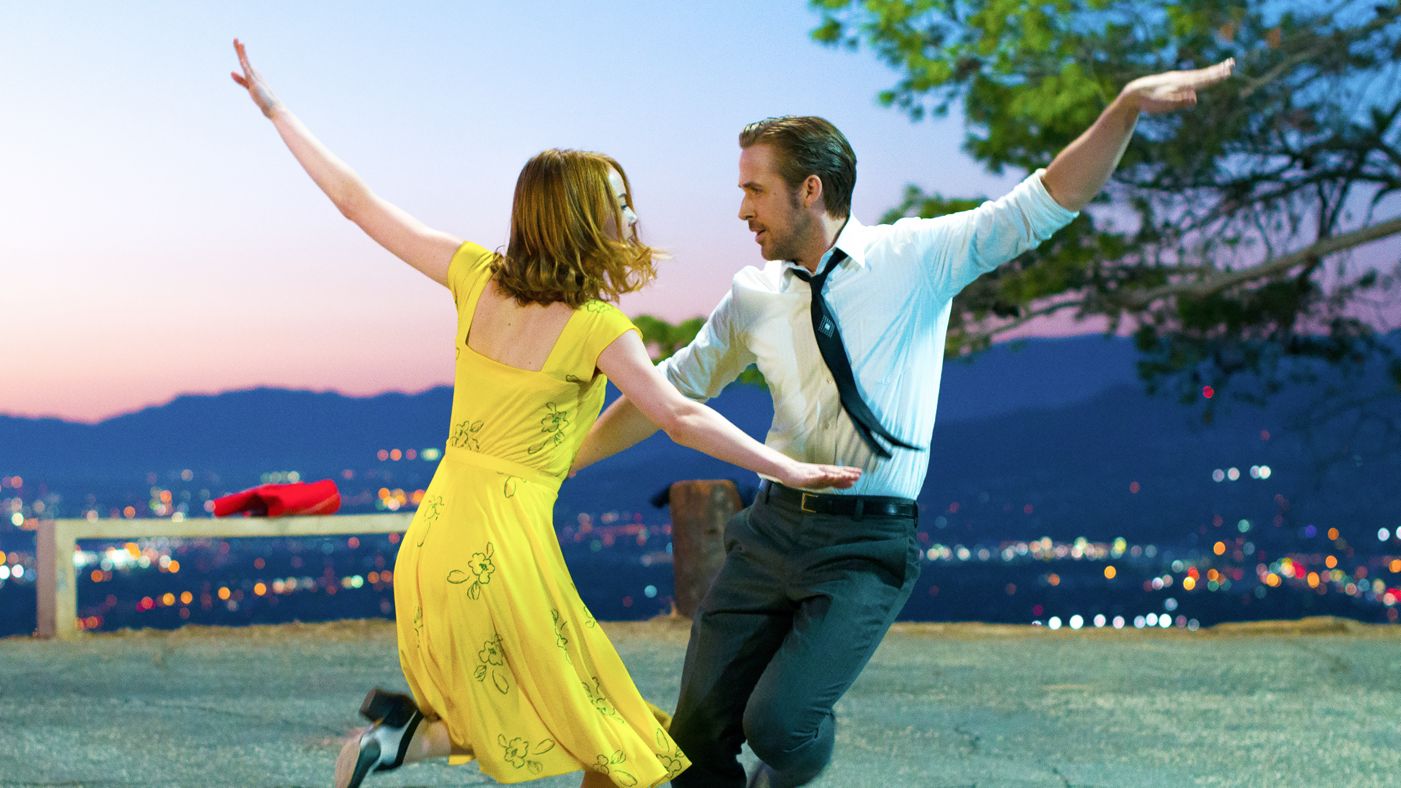
You’d never know it if you believe what you read, cranked out by click-hungry killjoys who’ve mastered the art of outrage-enthusiasm but haven’t learned yet how to see what’s staring them right in the face.
Here is a film whose protagonists, a struggling and sub-par jazz pianist and a not particularly terrific actress, work shitty jobs to follow their dubious dreams. We open on a spectacularly staged song-and-dance number set in L.A. traffic, alerting us immediately to the uncomfortable merging of dream and reality.
Sebastian (Ryan Gosling) imagines himself a latter-day proselytizer for jazz, even though he’s not good enough to keep a job at playing Christmas songs for the disinterested. Circumstances conspire to throw him into the orbit of Mia (Emma Stone), an actress who splits her time between auditioning for dumb roles, living in her group house, and holding down a gig as a barista in a sound-stage coffee shop.
How seriously does La La Land take Sebastian’s pretensions to greatness? On their first date, he waxes rhapsodic to Mia about the interplay of tones and musicians in classic bebop. She’s not into it. How could this be! “Well, I listen to it, and I don’t like it,” Mia replies.
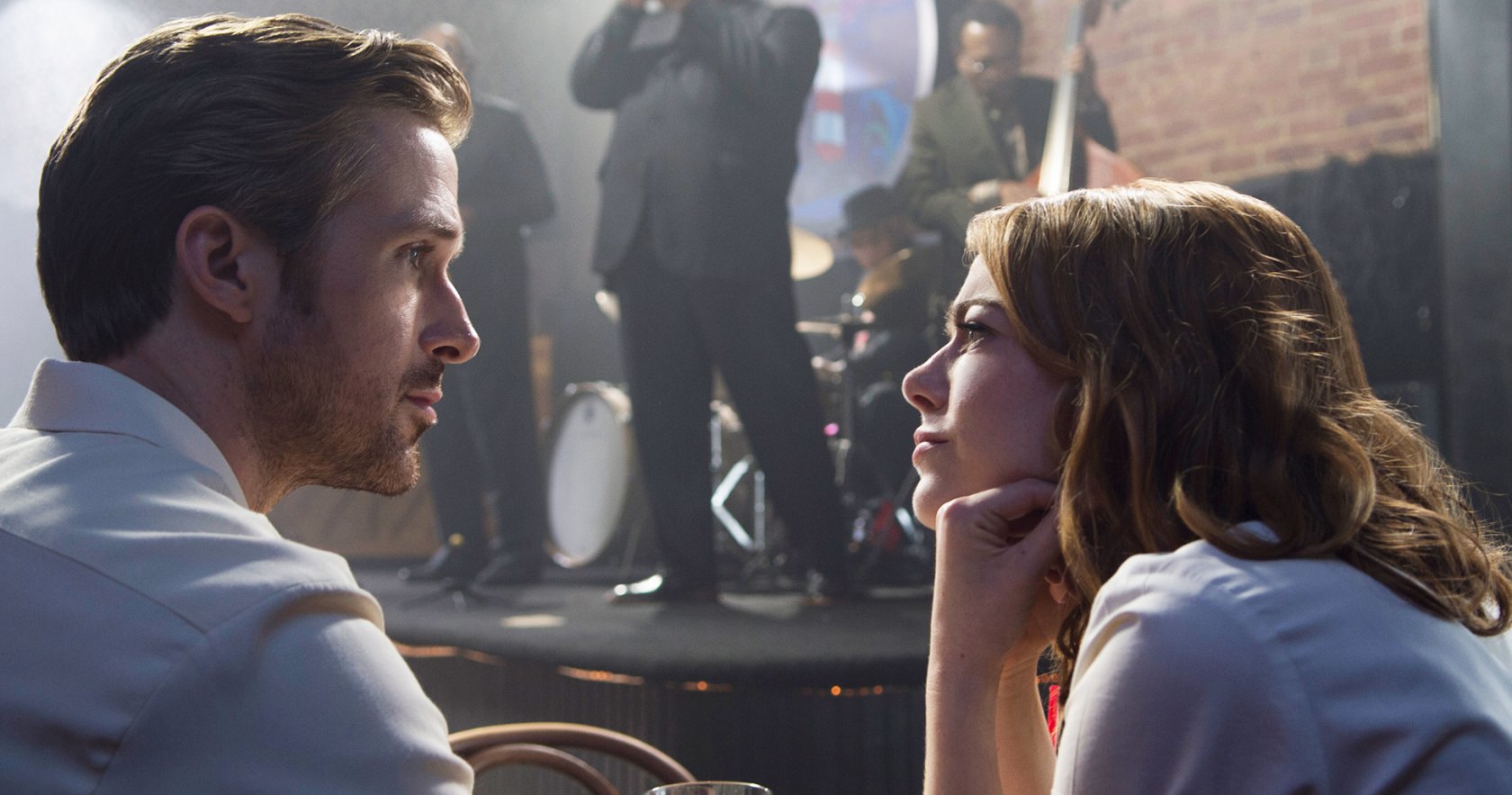
La La Land traffics in references to classic Hollywood for the specific purpose of undermining them. If it has a fault, it’s Chazelle’s insistence on this theme. Somehow, its critics refuse to get the joke. If the film fails to serve as fodder for the analysis, so much the worse for the film.
Fortunately, for the rest of us, it’s a joy. Chazelle reconstructs the vocabulary and grammar of the best entries in the genre — the opening shot is one for the ages, but there are numerous examples — to suck us in, and then he pulls the rug out. Instead of the frothy concoction we are led to expect from all the matching dresses and full-shot dance numbers, we encounter a narrative about love, loss, and unfulfilled dreams. La La Land is the saddest time at the movies you’ll have this year while also smiling.
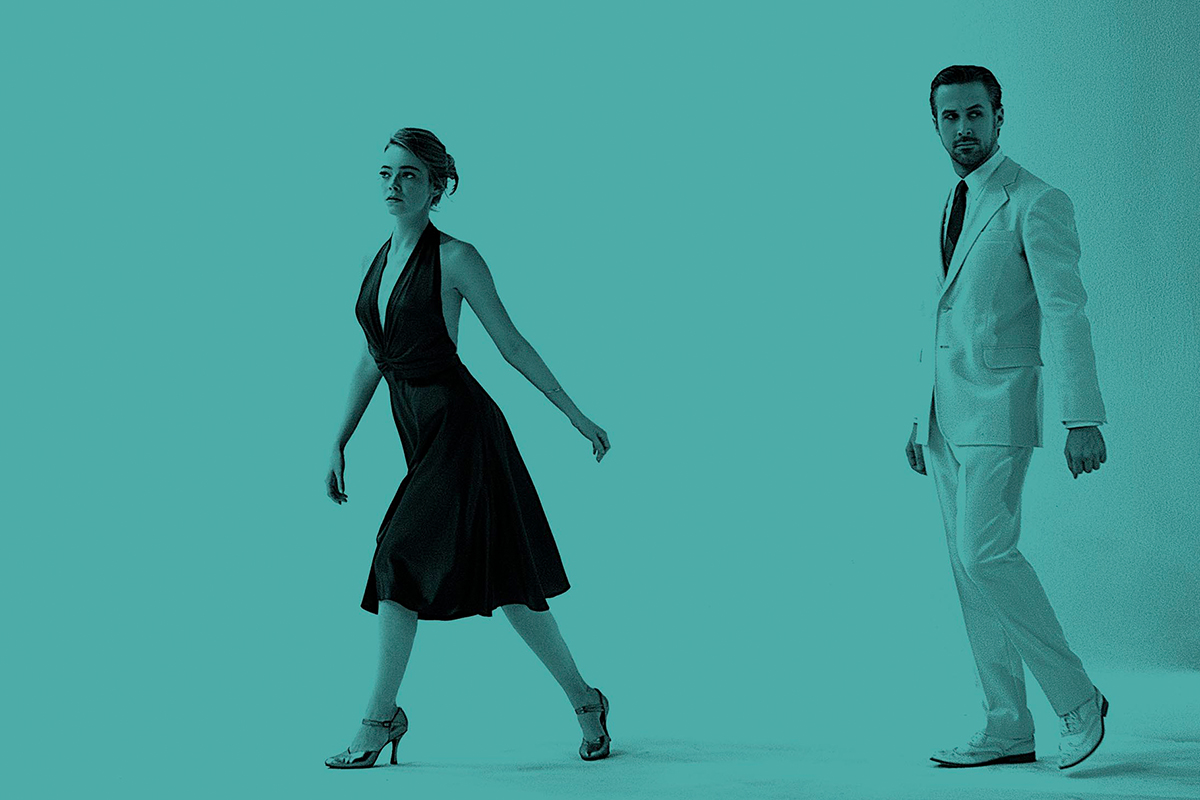
Gosling and Stone are terrific. The fact that they can’t sing that well, just one of the many strawmen erected by people in the Strawman Industry, underscores the film’s point. We no longer live in the time of musicals. We’re too hip for that sort of thing, even if artifice underwrites our interactions on the day to day.
But, every once in a while, we are able to drop our pretenses and be moved to the sky. It won’t, can’t, last. We wish desperately that it might, even though we know all this going in.
La La Land isn’t a movie about jazz. (I mean, look at the title!) It’s about how we navigate dreams, and our failures to realize them, exactly. It’s a gorgeous and daring film that will undoubtedly outlast its snide detractors.

